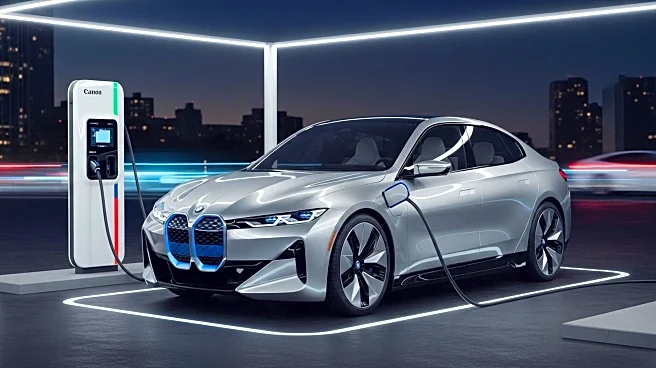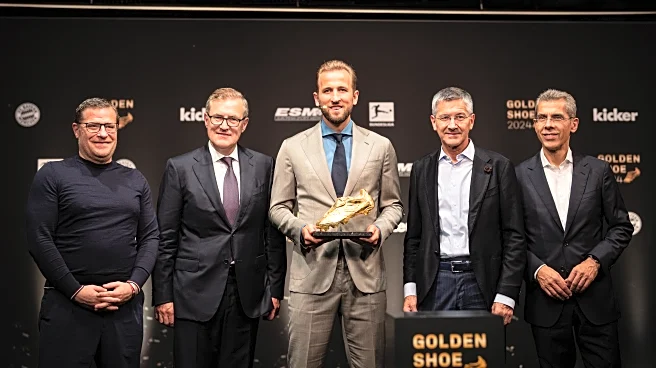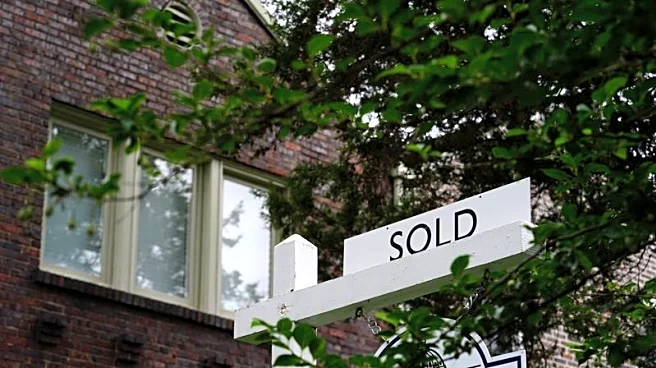What's Happening?
BMW is implementing a strategic electrification plan to enhance its position in the EV market, focusing on localized production and modular battery technology. The company has invested $1.7 billion in its Spartanburg plant to transition from internal combustion engines to EV and hydrogen fuel cell production by 2030. BMW's Neue Klasse platform, debuting in 2026, aims to offer improved range and charging capabilities. This approach contrasts with Tesla's scale-driven strategy and Mercedes' luxury-focused struggles, allowing BMW to outperform rivals in markets with underdeveloped charging infrastructure.
Why It's Important?
BMW's electrification strategy is significant for the U.S. automotive market, as it addresses challenges related to charging infrastructure and market adaptability. By focusing on localized production and modular platforms, BMW is positioned to respond swiftly to market shifts and regulatory trends. This strategy could enhance BMW's competitiveness against Tesla and Mercedes, influencing the dynamics of the EV market. Investors and industry stakeholders will closely watch BMW's execution, as it could impact market share and drive innovation in sustainable transportation.
Beyond the Headlines
BMW's approach to risk management through geographic diversification and AI-driven quality control highlights its commitment to cost efficiency and supply chain resilience. The company's standardized battery cell design and in-house production provide flexibility and quality control, reducing exposure to global supply chain disruptions. This strategy not only supports BMW's electrification goals but also aligns with broader industry trends towards sustainability and technological innovation. As the EV race evolves, BMW's focus on adaptability and fiscal prudence may prove crucial for long-term success.











